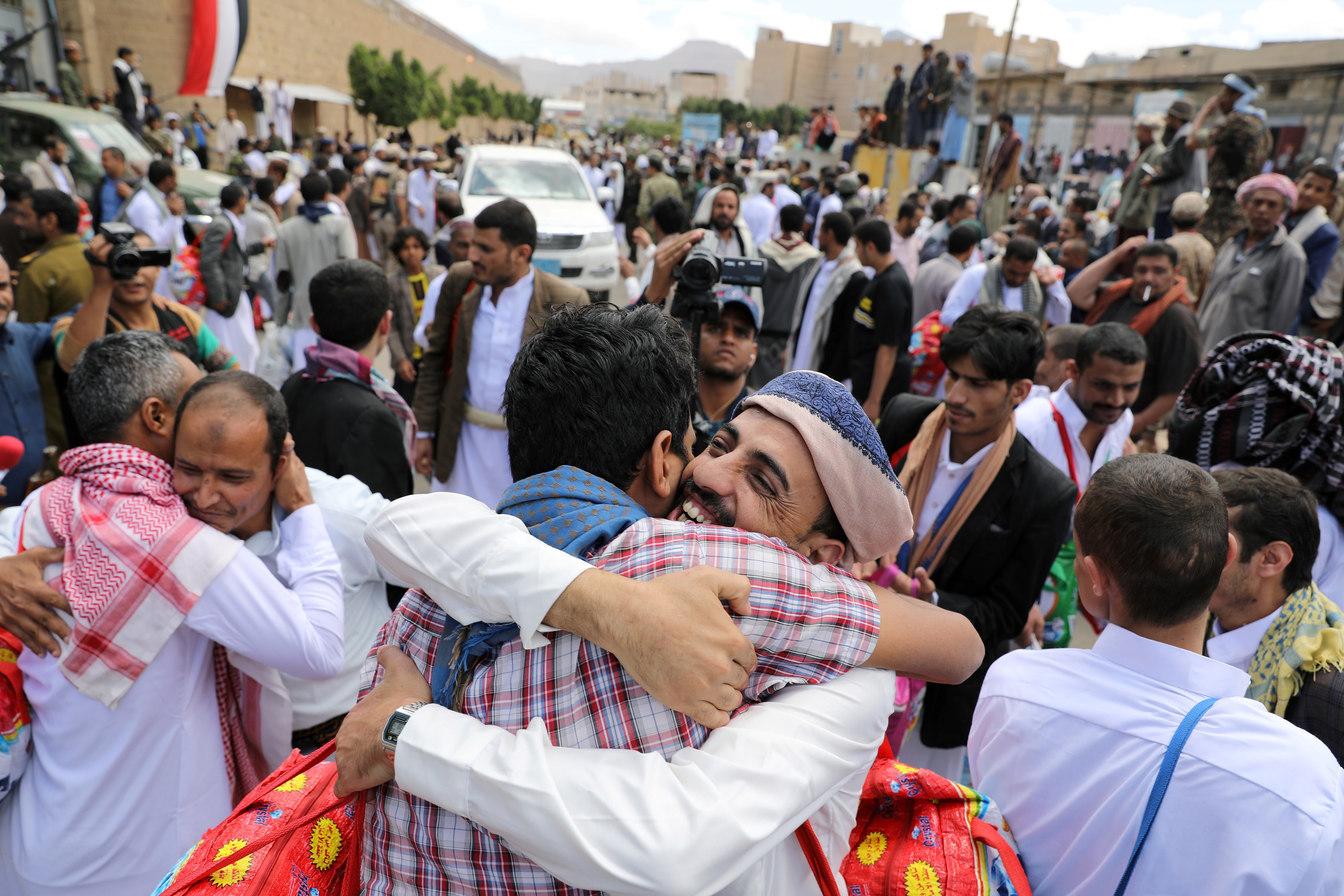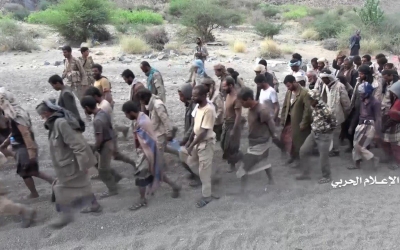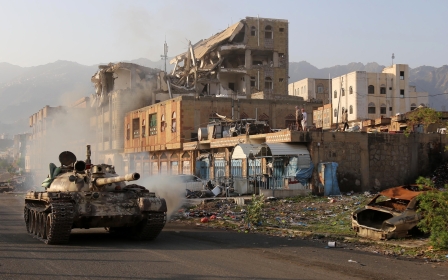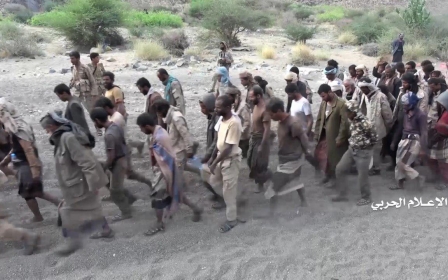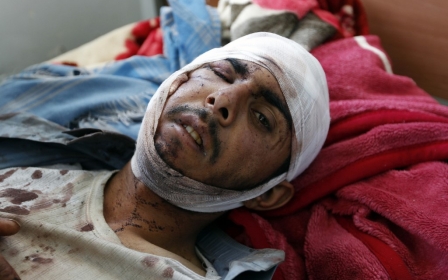Prisoner release breathes life into Yemen's Stockholm agreement
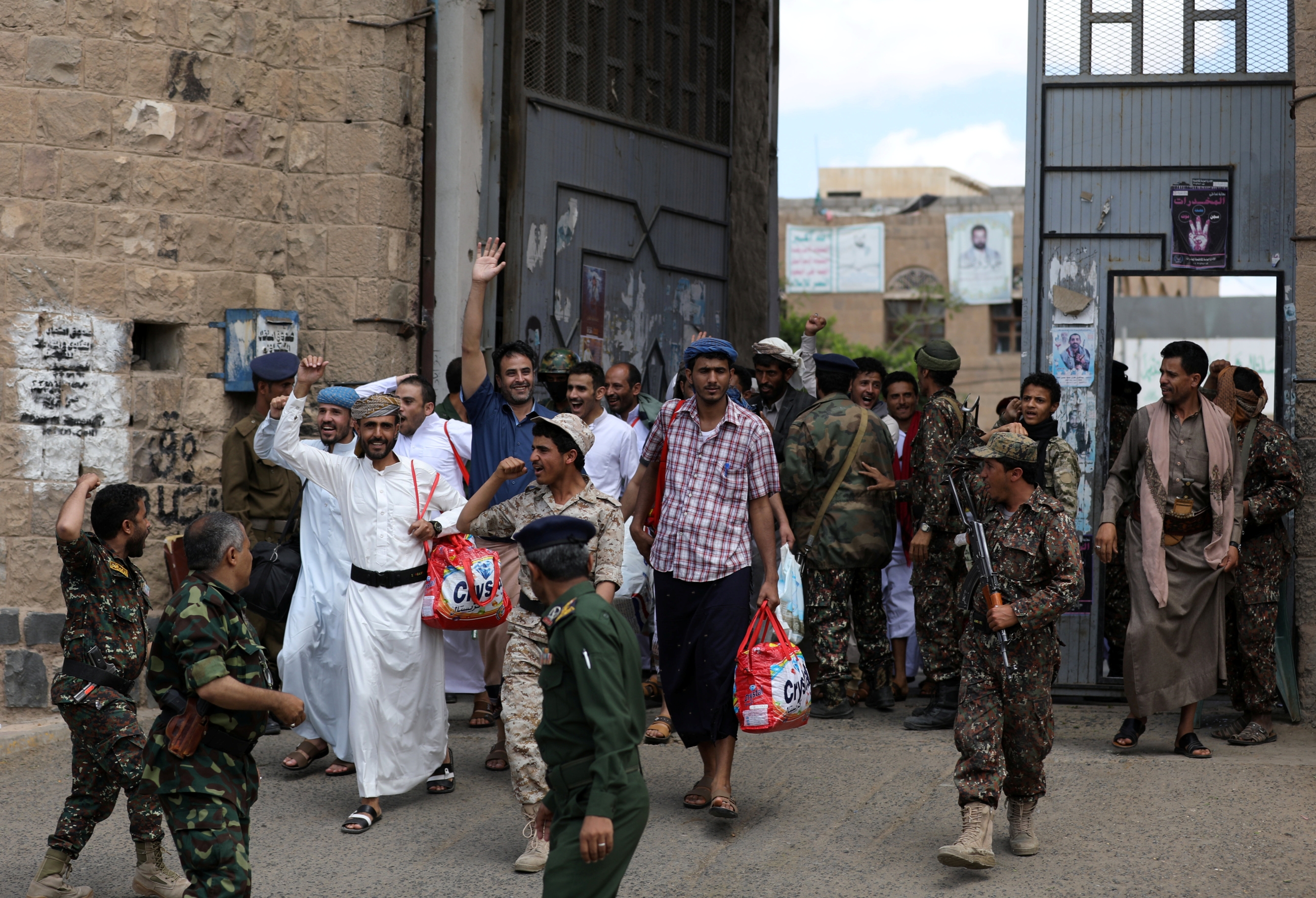
When the war broke out in Yemen in 2015, 17-year-old Mohammed Seraj and his family moved 171km away from the capital Sanaa to central Marib province, where his father started a new job as a restaurant cook.
Together with a few friends, Mohammed quit his studies in 2017 and joined the battles against the Houthi rebels in Marib.
As a young and inexperienced fighter, Mohammed was easily captured by the rebels, and became one of hundreds of detainees held by both sides of the conflict.
'I travelled to Sanaa to celebrate the release of my son and no one can imagine my happiness when I met Mohammed outside the prison'
- Latifa, mother of a freed detainee
Last year, however, Yemen's prisoners of war took centre stage, as the Houthis and pro-government forces moved towards a prisoner swap, which helped cool tensions and raise the hopes of detainees' families.
“Mohammed was a child who needed to study and build his future, but some friends tricked him and persuaded him to join the fighting. I did not know that he joined the battles but I knew when he was detained,” Latifa, Mohammed’s mother, told Middle East Eye.
New MEE newsletter: Jerusalem Dispatch
Sign up to get the latest insights and analysis on Israel-Palestine, alongside Turkey Unpacked and other MEE newsletters
Upon being informed of her son’s detention, Latifa left no stone unturned: she went to see military leaders in Marib, visited different organisations, and contacted some Houthi leaders to ask for his release.
“But all my attempts failed,” she said.
Latifa visited her son when he was transferred to Sanaa’s central prison, where he expressed his regret for having joined the war, leaving his mother feeling helpless.
“Mohammed was not aware enough of the reasons behind the war and why Yemenis are fighting, which shows that he's innocent,” she said.
A Saudi-led coalition, which receives arms from western countries, intervened in Yemen in 2015 after the Houthi movement expelled the Yemeni government and President Abd Rabbuh Mansour Hadi from the capital.
Latifa said that when a prisoner exchange was agreed upon in Stockholm in December 2018, she immediately went to the authorities in Marib to register Mohammed on the list.
His family’s happiness was short-lived, however, as the prisoner exchange failed to materialise in January, when it should have taken place per the Stockholm accord.
But Latifa’s hope was revived when the ICRC informed her that her son will be among the prisoners the Houthis intended to release soon.
On Monday, the Houthi rebels said they have freed 350 prisoners, including three Saudis, whose names were on the Stockholm agreement’s list, but the ICRC said they had released just 290.
“I travelled to Sanaa to celebrate the release of my son and no one can imagine my happiness when I met Mohammed outside the prison,” Latifa said.
“I thank the ICRC and the United Nations for their efforts and hope all detainees will be released soon.”
Revival of the Stockholm agreement
During the Stockholm meeting, the Houthi movement and the internationally recognised government agreed to swap prisoners as a confidence-building step, with each side meant to release around 7,000 detainees. But the arrangement has been stalled as the sides struggled to agree on implementation.
“Our initiative proves our credibility in implementing the Sweden agreement and we call on the other party to take a comparable step,” the head of the Houthis’ prisoners' affairs committee, Abdel-Qader al-Murtada, told reporters on Monday.
'Our initiative proves our credibility in implementing the Sweden agreement and we call on the other party to take a comparable step'
- Abdel-Qader al-Murtada, Houthi prisoners committee
The released detainees included 42 survivors of a coalition attack on a Houthi-run detention centre in the western city of Dhamar in early September. The Red Cross said over 100 people were killed.
The unilateral release was facilitated by the ICRC and United Nations following a request from the National Committee for Prisoners Affairs, according to ICRC.
"We are always ready to act as a neutral facilitator in the release of detainees when we receive a request from the parties to the conflict and hope that this operation opens the door to further releases to bring comfort to families awaiting reunification with their loved ones," said Franz Rauchenstein, the ICRC's head of delegation in Yemen.
The ICRC informed the families of minors of the release and made sure that they were coming to meet them, according to the organisation’s press release.
“The ICRC sees the release as a positive step that will hopefully revive the release, transfer and repatriation of conflict-related detainees as per the Stockholm Agreement,” it said.
The UN special envoy for Yemen, Martin Griffiths, welcomed the initiative by the Houthis and called on all parties to ensure the prisoners' safe return to their homes.
“I hope this step will lead to further initiatives that will facilitate the exchange of all the conflict-related detainees as per the Stockholm Agreement,” Griffiths said.
Salim, a brother of a 45-year-old detainee who was taken from his Sanaa home by the Houthis in 2017, said he hopes Yassin will be released soon as his name is also on the Stockholm’s prisoner exchange list.
“My brother did not participate in the fighting and he was taken from his house at night. He is a teacher and he is facing an accusation of supporting the coalition,” Salim told MEE.
“We did our best to release him but the Houthis refused. The implementation of the Stockholm agreement is the only thing that would ensure his release. This agreement opens a new horizon of hope for us.”
When Yassin’s family heard about the release of prisoners on Monday, their optimism that Yassin can one day be released was restored.
“I am happy to hear that the Houthis released some prisoners… Both sides should facilitate the implementation of the Stockholm agreement and I hope that pro-Hadi forces will release some prisoners as a reaction to the [Houthis’] move,” Salim said.
Full prisons
Some of the released prisoners are minors, some are civilians, but the majority are fighters, according to eye-witnesses. However, pro-government activists believe that the freed detainees were all civilians.
“There was no implementation of the Stockholm agreement. The reason behind this step is that the Houthi prisons are full,” Ammar Maqrami told MEE.
'The reason behind this step is that the Houthi prisons are full'
- Ammar Maqrami, pro-government activist
Maqrami said that the Houthis detained around 2,000 pro-government fighters in August, so they are now seeking to reduce the number of detainees in their prisons.
“To have thousands of detainees in your prison makes it difficult to provide them with food and take care of them, so the Houthis are keeping the most important prisoners with them and have released others,” Maqrami said.
On Sunday, the Houthis released footage allegedly showing scenes from a major offensive they carried out near the southern Saudi region of Najran, in which they claim to have detained at least 2,000 enemy fighters, including Saudis.
“The Stockholm agreement says that both side should release all the prisoners on the list, and not just a few,” Maqrami said.
He believes that the government should not mirror the rebels’ move, and instead, it should let the UN implement the Stockholm agreement as it is.
“There are no civilians in government prisons, only fighters. So unless there is a clear implementation of the Stockholm agreement, pro-Hadi forces should not release Houthi fighters,” Maqrami said.
Middle East Eye delivers independent and unrivalled coverage and analysis of the Middle East, North Africa and beyond. To learn more about republishing this content and the associated fees, please fill out this form. More about MEE can be found here.


